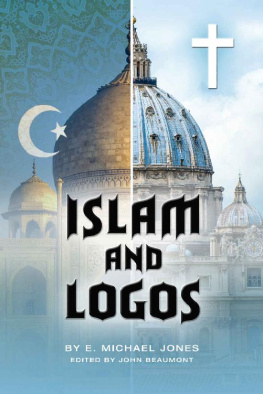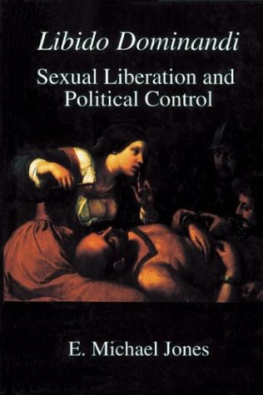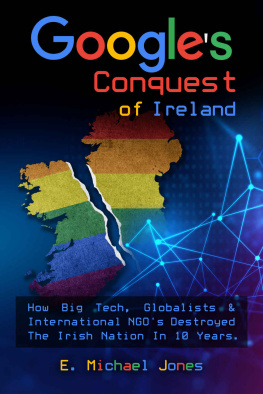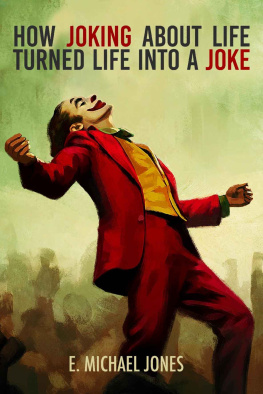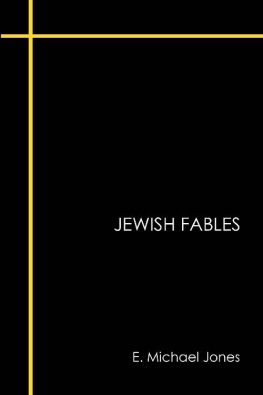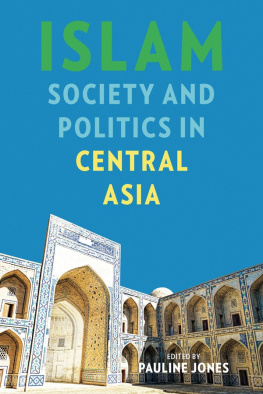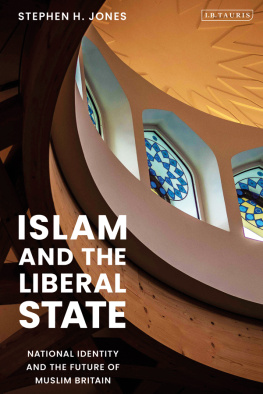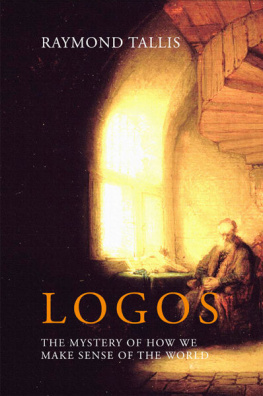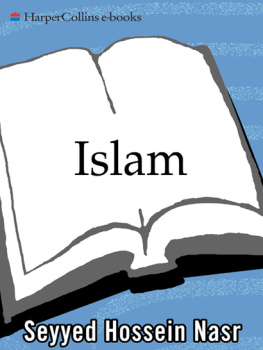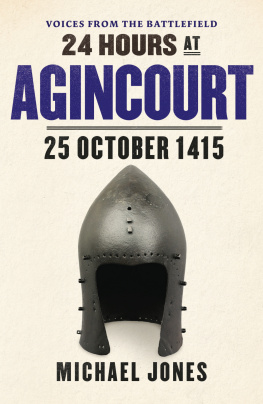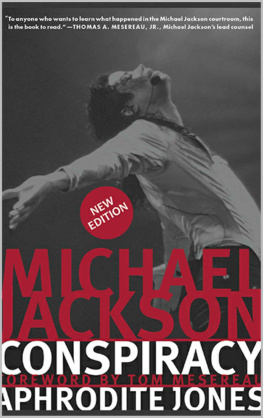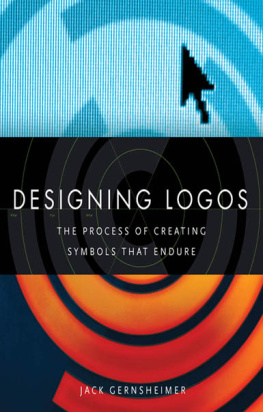E. Michael Jones - Islam and Logos
Here you can read online E. Michael Jones - Islam and Logos full text of the book (entire story) in english for free. Download pdf and epub, get meaning, cover and reviews about this ebook. year: 2016, publisher: Fidelity Press, genre: Religion. Description of the work, (preface) as well as reviews are available. Best literature library LitArk.com created for fans of good reading and offers a wide selection of genres:
Romance novel
Science fiction
Adventure
Detective
Science
History
Home and family
Prose
Art
Politics
Computer
Non-fiction
Religion
Business
Children
Humor
Choose a favorite category and find really read worthwhile books. Enjoy immersion in the world of imagination, feel the emotions of the characters or learn something new for yourself, make an fascinating discovery.
- Book:Islam and Logos
- Author:
- Publisher:Fidelity Press
- Genre:
- Year:2016
- Rating:3 / 5
- Favourites:Add to favourites
- Your mark:
- 60
- 1
- 2
- 3
- 4
- 5
Islam and Logos: summary, description and annotation
We offer to read an annotation, description, summary or preface (depends on what the author of the book "Islam and Logos" wrote himself). If you haven't found the necessary information about the book — write in the comments, we will try to find it.
Islam and Logos — read online for free the complete book (whole text) full work
Below is the text of the book, divided by pages. System saving the place of the last page read, allows you to conveniently read the book "Islam and Logos" online for free, without having to search again every time where you left off. Put a bookmark, and you can go to the page where you finished reading at any time.
Font size:
Interval:
Bookmark:
Fidelity Press
206 Marquette Avenue
South Bend, Indiana 46617
www.culturewars.com
Copyright, 2016, Fidelity Press

Articles on Islam appear almost every day in the press. However, there is much ignorance regarding the exact nature of Islam. Many assume that the religion is one coherent body of doctrine and action. This is incorrect. There are many forms of Islam, including the obvious ones of Sunni and Shia. Even these two are vastly different in their approach to religious and social issues.
Over the last few years Dr. E. Michael Jones has done much research on the question of Islam, both from a historical perspective and also from the point of view of contemporary matters. This research has resulted in a number of detailed articles on a variety of specific topics. In the present short book the main parts of these are gathered together in order that the enquiring reader may gain an accurate picture of this whole subject.
The book begins with an introduction to the 1979 Iranian revolution, a key event. This is followed by a history of earlier Islam. Next comes a reference to the significance of the concept of Logos, a crucial matter in almost all of Dr. Jones writings. This is followed by an examination of what exactly is the nature of Islam in the light of this information regarding Logos. Then comes some detail on the approach of the Sunni and the Shia and that of Catholicism in respect of faith and reason, followed by a review of the differing approaches of Western and Islamic philosophy.
These more general issues having been analyzed, the book then embarks upon some specific issues. These comprise most importantly the following: the question of Logos and sex; the allegation that the United States is the great Satan; Foucaults contribution to thought in respect of the Islamic revolution; and several other significant matters. Finally, some conclusions are put forward.
The above matters may be said to be the more formal part of the book. There then follows a postscript, which recounts one of the speaking tours made by Dr. Jones to Iran. This is more informal and gives a detailed account of the day to day issues that arise in that country, as mediated by Dr. Jones in his talks and discussions with many representatives of society there.
Once again Dr. Jones shows himself to be at the forefront of modern thinking on the question of the relationship between the Catholic Church and Islam and readers will be much enriched by his clear and logical analysis of the issues.
John Beaumont
Leeds, England
Feast of St. Matthias, Apostle
May 14th, 2016
On January 16, 1979, His Imperial Majesty Shah Mohammed Reza Pahlevi, the King of Kings, Light of the Aryans and Head of the Warriors, descended from the Peacock Throne, boarded a plane, and flew into exile. Two weeks later Ruhollah Khomeini, a 77-year-old religious scholar, flew from exile in Paris to Tehran, where he was greeted by millions of followers, and became the leader of the first modern Islamic revolution. The Ayatollah Khomeini came to power, not riding on a donkey, but almost as modestly, riding in the passenger seat of a Chevy pickup surrounded by a few million of his supporters, some of whom were sitting on the roof of the trucks cab. What followed was the chaos and violence which accompanies any revolution, revenge killings aimed at the SAVAK, the secret police that had been trained to torture Iranians, the burning of that countrys cinemas in protest against the sexualization of the culture which the Rockefellers and the CIA had orchestrated to turn the Iranians into sexual robots and docile consumers ( i.e ., Americans), the hostage crisis, which got prolonged by George Bush and Ronald Reagan to defeat Jimmy Carter in the election of 1980, and enough footage to make a number of movies, the most recent being Argo , a gripping CIA propaganda film which obscures everything about the revolution that needs to be explained.
The miracle of the Iranian Revolution of 1979 is that it did not end up like all of the revolutions which accompanied the Arab Spring in 2011. By early 2013 Libya and Egypt had descended into chaos. The reason the Iranian Revolution didnt is Imam Khomeini and Shia Islam, which honors Logos (or to give Arash Darya-Bandaris translation of that Greek term, nezzam I tauhidi , the order of unicity) in a way that the Sunni Muslims and most certainly the Wahhabis and the Salafists do not. There is no separation of Church and State in the Shia version of Islam, but there is paradoxically among the fundamentalist Salafists, who, like the Wahhabis and the more radical Sunni sects, accepted the political hegemony of the caliphate.
Imam Khomeini was able to keep the Iranian Revolution under control because he was able to exercise both political and spiritual authority at a crucial moment in Irans history. If he had not been able to wield both swords, that of the emperor and the pope simultaneously, Iran would probably look a lot like what Egypt looks like today. Iran is the only country in the world which has conducted a successful counterrevolution against the American-Zionist Imperium and has lived to tell the tale. At a time when most Islamic revolutions seemed destined to go from oppression to anarchy in the wake of the Arab Spring, the Iranian Revolution still stands as an example of a people who successfully broke the yoke of Jewish-American cultural hegemony and then, in spite of the turbulence of the early years and the devastation wrought by the eight-year long war with Iraq, successfully rolled back the sexualized culture of the 60s without succumbing to anarchy or a new form of dictatorship.
Americas Zionist-controlled government is hostile to Iran, not because it possesses or wants to possess nuclear weapons, but because it has taken control of its own culture in a way that the West still finds puzzling, dramatic, and, ultimately, an affront to everything the regime preaches, from sodomy to usury. This was probably the reasoning behind the 2012 release of Argo , the CIA propaganda film demonizing Iranians and lionizing Hollywood Jews. Argo is a perverse tribute to how unsettling the American elites continue to find this successful provincial uprising against their universal cultural hegemony. The message of Argo is what you would expect from the Masonic republic of America. Americans are deceivers. Ben Affleck moves blithely from one deception to another; he forges visas; he is involved in the production of a phony film, which is produced by Hollywood, Americas propaganda ministry. He teaches the hostages how to deceive their captors. He coaches everyone in deception, and because of this we are to recognize him as an American hero.
If one were under any illusions that the West had somehow mellowed in the rebellion against Gods order that was the essence of the Enlightenment, they would be dispelled by viewing A Royal Affair (2012). The film is seriously European but not artsy fartsy. It is a biopic about the life of Johan Struensee, the physician to King Christian IV, king of Denmark when the Enlightenment was raging in France, the continents most powerful country. By the time Struensee had become his physician, the king had gone mad from (in the films own words) excessive masturbation. Struensee exploited the situation to become in short order the queens lover (Struensee seduced the queen by giving her his contraband copies of Rousseau to read. The fish rots first at the head.) and de facto dictator of the Kingdom of Denmark. He then used his position as dictator to introduce the Enlightenment, in the form of freedom of the press and mandatory smallpox inoculation, to Denmark. What followed was heaven on earth for a while at least until the forces of evil, otherwise known as church and state, got their pay cut as part of government austerity measures. At that point the dclass ruling class organized a counterrevolution and Struensee became the Enlightenments version of Jesus Christ by shedding his blood for the people who rejected him in the name of hatred of all religion and youre probably expecting this by now freedom.
Font size:
Interval:
Bookmark:
Similar books «Islam and Logos»
Look at similar books to Islam and Logos. We have selected literature similar in name and meaning in the hope of providing readers with more options to find new, interesting, not yet read works.
Discussion, reviews of the book Islam and Logos and just readers' own opinions. Leave your comments, write what you think about the work, its meaning or the main characters. Specify what exactly you liked and what you didn't like, and why you think so.

